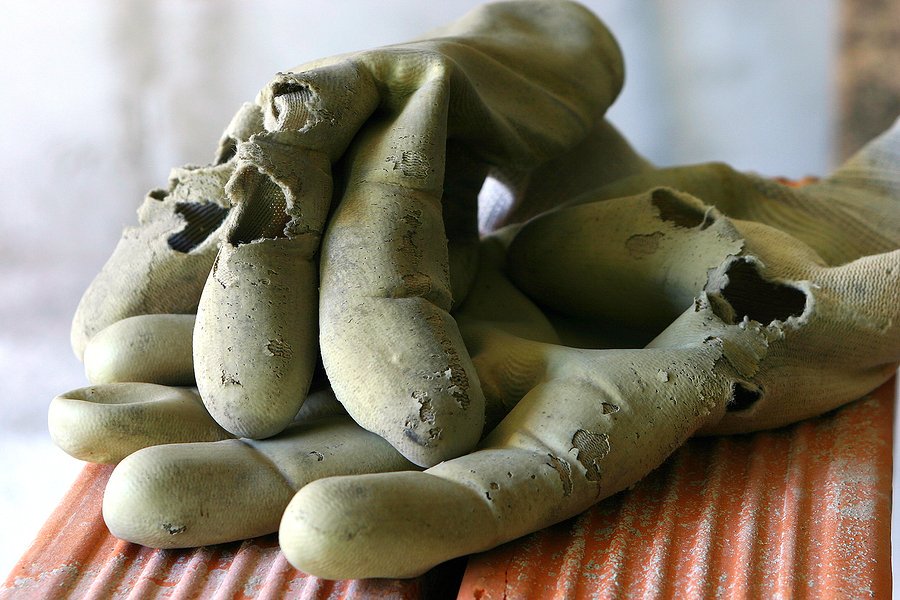
The #1 Reason Your Work Gloves Fail Too Soon
Share
You know the feeling. You're deep into a task, your hands are protected, and then rip. Suddenly, your work gloves are compromised, your hands are exposed, and your workflow grinds to a halt. It's frustrating, costly, and can even be dangerous.
While many factors contribute to a glove's lifespan, there's one primary culprit that stands out as the #1 reason your PPE gloves fail too soon:
The #1 Reason Your Work Gloves Fail Too Soon: Abrasion
Yes, the relentless, repetitive friction of daily work is the most common enemy of your safety gloves. Whether you're handling rough materials, dragging boxes, gripping tools, or even just constantly moving your hands against surfaces, that ongoing rubbing and wearing action systematically breaks down glove materials.
What is Abrasion and Why is it So Destructive?
Abrasion refers to the process of scraping or wearing away by friction. In the context of work gloves, this means:
-
Constant Contact: Every time your glove rubs against a surface – be it cardboard, concrete, metal, or even another tool – tiny bits of the glove material are worn away.
-
Material Degradation: Over time, this constant friction thins the glove's coating and liner, eventually creating holes or thinning areas that compromise protection.
-
High-Wear Zones: The fingertips, palm, and especially the thumb crotch (the area between your thumb and forefinger) are high-stress points that experience the most abrasion, leading to premature failure in these critical areas.
Other Factors That Worsen Abrasion (and Glove Lifespan)
While abrasion is the main offender, several other factors exacerbate its impact and accelerate glove failure:
-
Poor Quality Materials: Cheap gloves often use inferior coatings and liners that simply aren't designed to withstand significant abrasive forces.
-
Incorrect Glove for the Task: Using a thin, general-purpose glove for heavy-duty material handling will inevitably lead to quick wear. Matching the PPE hand protection to the specific hazards and abrasive levels of the job is crucial.
-
Improper Fit: Gloves that are too loose can bunch up, creating areas of concentrated friction. Gloves that are too tight put undue strain on seams and materials, making them prone to tearing.
-
Lack of Care: Dirt, grime, oils, and even sweat can degrade glove materials over time. Not cleaning or properly storing industrial gloves can shorten their lifespan.
-
Chemical Exposure: Some coatings can be degraded by contact with oils, greases, or solvents, making them more susceptible to abrasive wear.
How to Choose & Care for Work Gloves That Last
The good news is you can significantly extend the life of your durable work gloves by making informed choices and taking proper care:
-
Prioritise Abrasion Resistance (EN 388): Look for gloves with high EN 388 abrasion ratings (the first digit in the four-digit code, rated 0-4, with 4 being the highest). A higher rating means the glove can withstand more rubs before wearing through.
-
Choose the Right Coating:
-
Nitrile (Foam, Sandy, Flat): Excellent for abrasion resistance and often superior for oil-resistant grip. Sandy nitrile offers enhanced grip in dry, wet, or oily conditions and great durability. Foam nitrile provides a good balance of grip, breathability, and abrasion resistance.
-
PU (Polyurethane): Offers good abrasion resistance, especially for lighter-duty tasks requiring high dexterity.
-
-
Opt for Reinforced Stress Points: Gloves with reinforced thumb crotches or additional padding in high-wear areas will last significantly longer.
-
Ensure a Proper Fit: Always consult sizing guides. A snug, comfortable fit prevents bunching and reduces material stress.
-
Match the Glove to the Job: Don't use a precision assembly glove for handling rough concrete blocks. Invest in task-specific safety gloves – whether that's cut-resistant gloves, impact protection gloves, or general-purpose options.
-
Clean and Store Properly: Many reusable safety gloves can be washed to remove dirt, sweat, and oils that accelerate degradation. Always follow manufacturer washing instructions and store gloves in a cool, dry place.
-
Rotate Pairs: If you use gloves daily, having multiple pairs and rotating them allows each pair to dry out and recover between uses, extending overall longevity.







